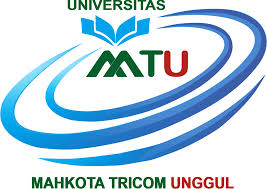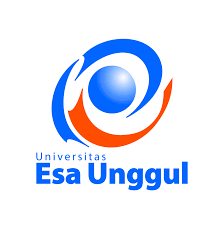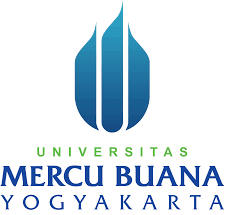Rethinking Anti-Corruption in Public Finance: Integrating Hisbah and Maqasid Sharia into Indonesia’s Budgeting System
DOI:
https://doi.org/10.55927/fjmr.v4i10.523Keywords:
Indonesia’s State Budget Corruption, Impact of Over-Quantification, Hisbah, Maqashid Shariah, Islamic Economics in IndonesiaAbstract
Conventional anti-corruption strategies in public finance, particularly those emphasizing legalistic and technocratic approaches, have proven ineffective in addressing corruption within Indonesia’s State Budget (APBN). An overreliance on quantitative indicators raises significant concerns, as it can compromise transparency, integrity, and ethical governance. This study aims to critique the limitations of the current anti-corruption framework and propose an alternative model grounded in Islamic principles, specifically the concepts of hisbah and maqashid sharia, to enhance ethical oversight and public accountability in fiscal governance. Using a qualitative approach, the study analyzes contemporary empirical data and Islamic ethical frameworks to explore the integration of these principles into the budgeting process. The analysis includes case-based insights and theoretical interpretations of Islamic governance models. Findings indicate that hisbah, as a participatory and community-based oversight mechanism, offers a viable alternative to top-down audit systems. Maqashid sharia provides a normative foundation for aligning budgeting with public interest, emphasizing justice, protection of property, human dignity, and collective welfare. These principles can be operationalized through inclusive planning, socially responsive spending, and value-based performance evaluation.
References
Arifah, U., Baroroh, N., & Muttoharoh, D. S. (2023). LEMBAGA HISBAH DALAM EKONOMI BISNIS ISLAM. LABATILA: Jurnal Ilmu Ekonomi Islam, 7(1). https://doi.org/10.33507/lab.v4i01
Bello Dogarawa, A. (2013). Hisbah and the promotion of ethical business practices. International Journal of Islamic and Middle Eastern Finance and Management, 6(1), 51–63. https://doi.org/10.1108/17538391311310743
Bosse, M., & van Loon, S. (2022). Challenges in quantifying genome erosion for conservation. Frontiers in Genetics, 13. https://doi.org/10.3389/fgene.2022.960958
Espeland, W. N., & Stevens, M. L. (2008). A Sociology of Quantification. European Journal of Sociology, 49(3), 401–436. https://doi.org/10.1017/S0003975609000150
Jalali Aliabadi, F., Mashayekhi, B., & Gal, G. (2019). Budget preparers’ perceptions and performance-based budgeting implementation. Journal of Public Budgeting, Accounting & Financial Management, 31(1), 137–156. https://doi.org/10.1108/JPBAFM-04-2018-0037
Joyce, P. G., Lee, R. D., & Johnson, R. W. (1990). Public Budgeting Systems. Public Administration Review, 50(5), 583. https://doi.org/10.2307/976793
Landman, T. (2003). Issues and Methods in Comparative Politics: An Introduction. Routledge.
Mardian, Y., Shaw-Shaliba, K., Karyana, M., & Lau, C.-Y. (2021). Sharia (Islamic Law) Perspectives of COVID-19 Vaccines. Frontiers in Tropical Diseases, 2. https://doi.org/10.3389/fitd.2021.788188
Mashhour, A. (2005). Islamic Law and Gender Equality: Could There be a Common Ground?: A Study of Divorce and Polygamy in Sharia Law and Contemporary Legislation in Tunisia and Egypt. Human Rights Quarterly, 27(2), 562–596. https://doi.org/10.1353/hrq.2005.0022
Ngatindriatun, N., Alfarizi, M., & Widiastuti, T. (2024). Impact of Sharia hospital service standards and religiosity commitment on patient satisfaction and loyalty: insights from certified Sharia hospital in Indonesia. Journal of Islamic Accounting and Business Research. https://doi.org/10.1108/JIABR-12-2022-0344
Nguyen, D. H., Weigel, C., & Hiebl, M. R. W. (2018). Beyond budgeting: review and research agenda. Journal of Accounting & Organizational Change, 14(3), 314–337. https://doi.org/10.1108/JAOC-03-2017-0028
Nurmandi, A., & Kim, S. (2015). Making e-procurement work in a decentralized procurement system. International Journal of Public Sector Management, 28(3), 198–220. https://doi.org/10.1108/IJPSM-03-2015-0035
Pertiwi, K. (2022). “We care about others”: discursive constructions of corruption vis-à-vis national/cultural identity in Indonesia’s business-government relations. Critical Perspectives on International Business, 18(2), 157–177. https://doi.org/10.1108/cpoib-03-2019-0025
Prabowo, H. Y. (2023). Corruption and the curse of over-quantification. Journal of Financial Crime, 30(6), 1629–1652. https://doi.org/10.1108/JFC-08-2022-0179
Quah, J. S. T. (2019). Combating police corruption in Indonesia: cleansing the buaya (crocodile). Asian Education and Development Studies, 9(2), 129–143. https://doi.org/10.1108/AEDS-04-2018-0088
Stratta, E. C., Riding, D. M., & Baker, P. (2016). Ethical erosion in newly qualified doctors: perceptions of empathy decline. International Journal of Medical Education, 7, 286–292. https://doi.org/10.5116/ijme.57b8.48e4
Tumewang, Y. K., Rahmawati Dewi, H., & Amin, H. (2025). Over a decade of maqashid sharia studies: a bibliometric analysis and direction for future research. Journal of Islamic Accounting and Business Research, 16(1), 25–52. https://doi.org/10.1108/JIABR-08-2022-0207
Published
Issue
Section
License
Copyright (c) 2025 Kholilatul Khusni, Katsara Tatayyumi Fayazida

This work is licensed under a Creative Commons Attribution 4.0 International License.

































